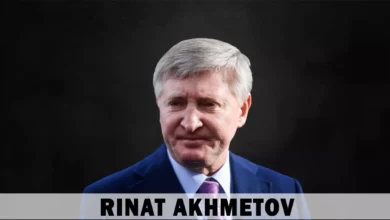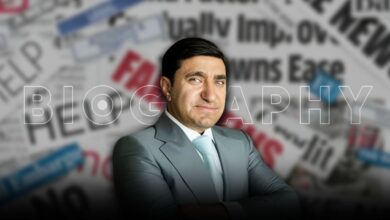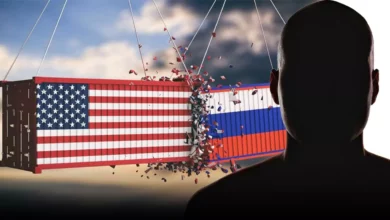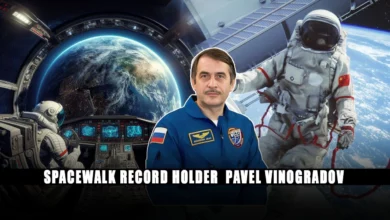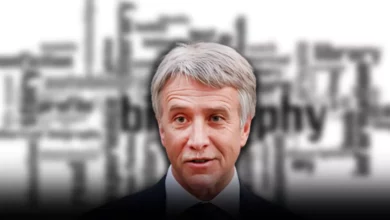Mikhail Khodorkovsky: Bold Biography of Russian Oligarch and Businessman
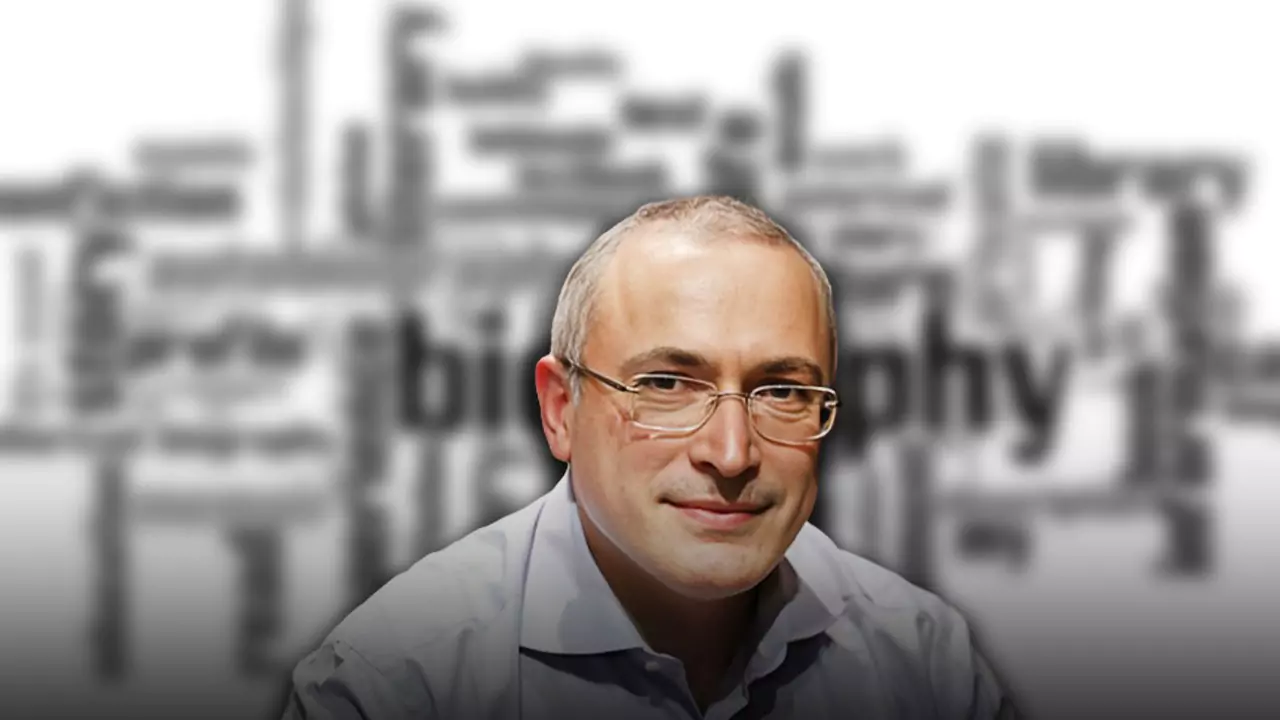
Early Life and Education (1963-1986)
Mikhail Khodorkovsky, a well-known figure in contemporary Russian history, was born on June 20, 1963, into a family of chemical engineers residing in Moscow. Although the family started with humble origins, Khodorkovsky displayed an early fascination and talent for physics and chemistry. His parents were quick to notice his talents and they wholeheartedly supported and encouraged his growth in that particular direction. He pursued his education further after attending a specialized school that emphasized mathematics and chemistry. He enrolled at the Moscow Mendeleev Institute of Chemical Technology and completed his studies in 1986, earning a certification as an industrial engineer.
Entrepreneurial Ventures (1986-1989)
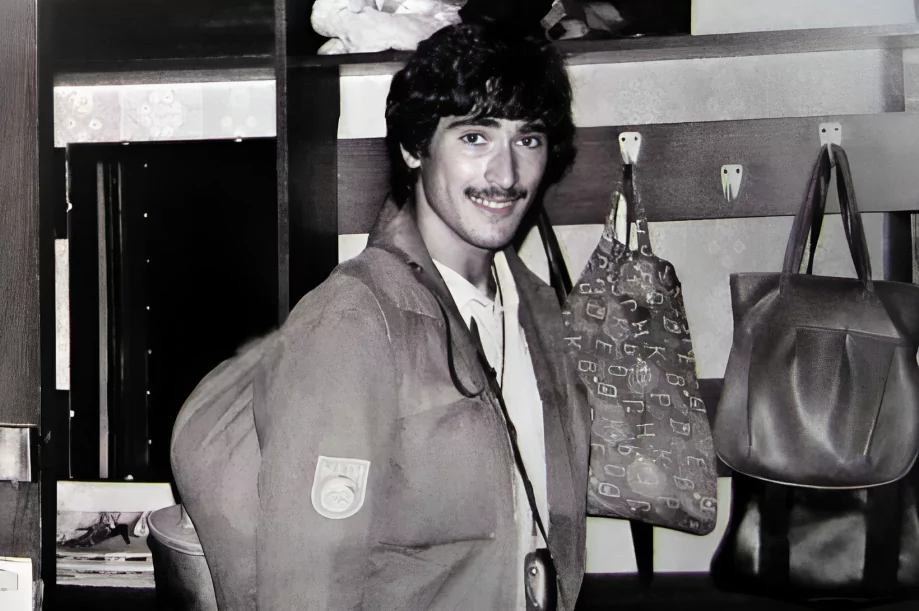
Khodorkovsky embarked on his entrepreneurial journey by founding the Center for Scientific and Technical Creativity of Youth, which demonstrated his ambition and talent for innovation. At the same time, he also pursued another higher education degree at the Institute of National Economy. He established Menatep Bank in 1989, with an initial focus on scientific and technical programs. His entry into the financial sector was marked by this move, and Menatep swiftly gained accreditation, establishing itself as a prominent player in financial transactions.
Overview of Menatep Bank
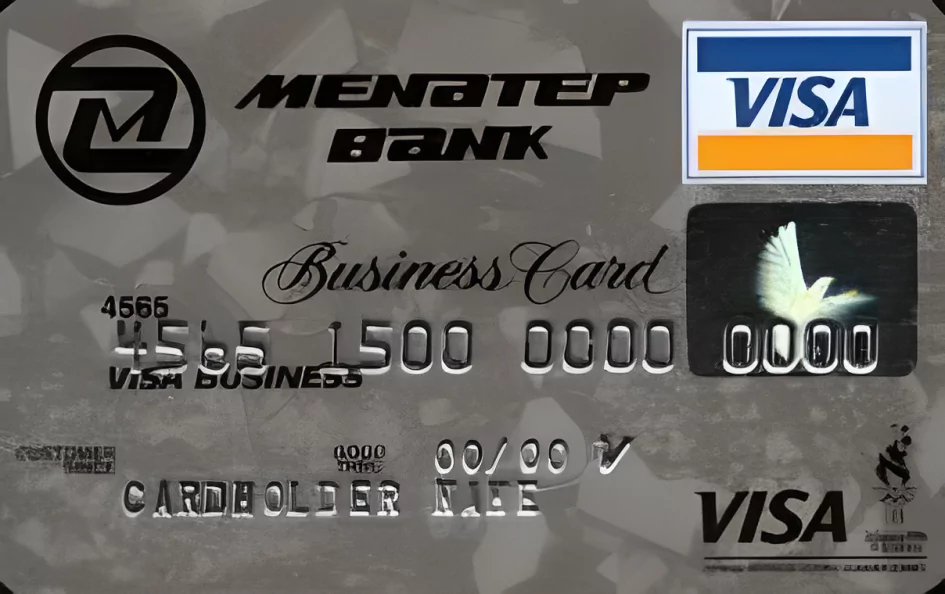
Menatep Bank, established in 1990, was one of the first privately owned banks in post-Soviet Russia.
It provides various banking services, including commercial lending, trade finance, foreign exchange, and documentary settlements.
The bank’s customers were mostly large-sized companies in the oil, food, and non-ferrous metal industries, as well as accounts of the Moscow City government and the government of the Ingush Republic. In 2004, Menatep Bank was acquired by its management team, which renamed it National Bank “TRUST Национальный банк “ТРАСТ”).
The decision to change the name of the bank was made by the general meeting of shareholders in the same year. Ilya Yurov, who had been serving as the Head of Treasury at Menatep Bank since 1996, became the chairman of the board of directors of the new bank.
Menatep Bank has been linked to numerous international scams and was bought in at a rigged auction of Soviet assets. The bank was also associated with the Russian mafia, as it was listed by US authorities as a bank connected to organized crime.
Entry into the Oil Business (1992-1995)
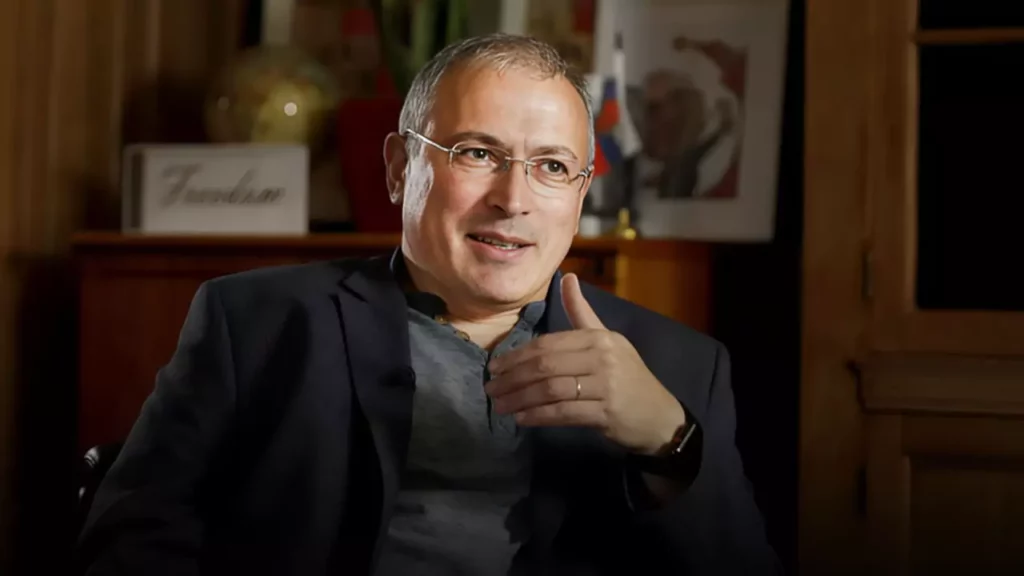
During the early 1990s, Mikhail Khodorkovsky decided to shift his attention towards the oil industry, which marked the start of his engagement with Yukos. He arranged a deal where Menatep Bank shares were exchanged for significant ownership in the struggling Yukos. As time went on, Khodorkovsky and his partners managed to acquire the majority of Yukos shares, which led to him taking on a leadership role. Thanks to his strategic management skills and effective utilization of Menatep’s assets, Yukos was able to evolve into a dominant player in the global energy market.
Philanthropy and Open Russia Foundation (1995-2001)
Khodorkovsky was actively involved in philanthropy. One of his notable achievements was co-founding the OpenRussia Foundation, which focused on charitable endeavours and socio-political initiatives. The foundation eventually transformed into “Open Russia” and encountered persecution from Russian authorities, which ultimately resulted in its closure in 2021 due to concerns for the safety of its employees.
Overview of the OpenRussia Foundation
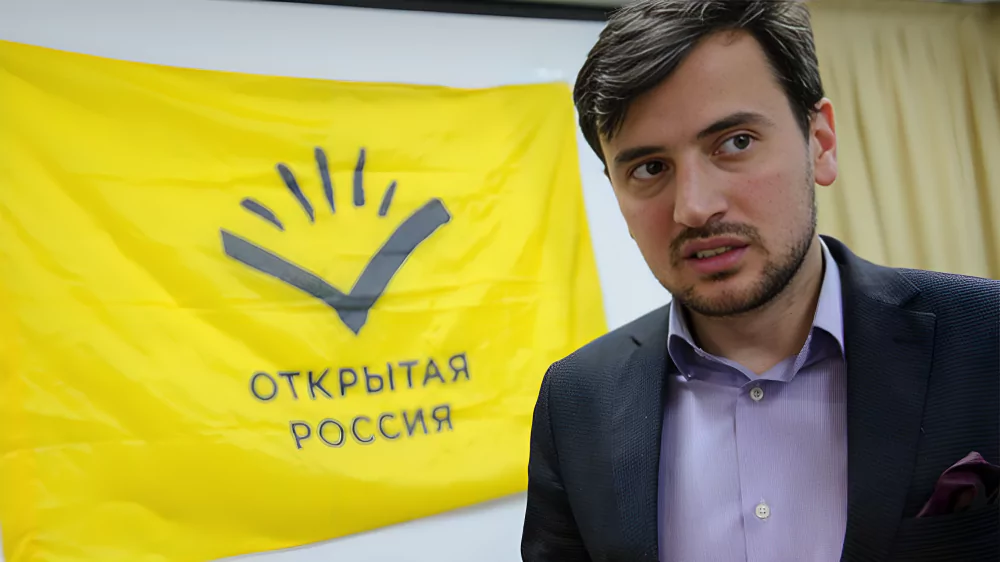
Mikhail Khodorkovsky, the exiled Russian businessman and founder of Yukos Oil Company, along with its shareholders, established the Open Russia Foundation in 2001.
The foundation aims to unite citizens living both inside and outside of Russia who share European values and collaborates to promote a strong, dynamic, and forward-looking state based on effective democratic institutions and the rule of law.
Open Russia is not a political organization but rather a “horizontal alliance” of individuals and groups that can make change happen when working together.
Some key aspects of the Open Russia Foundation include:
- Online Forums: These forums provide a platform for citizens to discuss various issues and share their opinions.
- Open Lecture: This event series features discussions and lectures on relevant topics.
- Open Russia World: The English-language portal for Open Russia, fosters dialogue between Russia and the rest of the world, promotes the universal values of a democratic nation, and presents an alternative vision for Russia.
Open Russia has faced challenges in its operations, such as being designated “undesirable” by Russia’s Prosecutor General’s Office in 2017, effectively banning the organization and its sister organization, the Open Russia Civic Movement, from operating in Russia.
Despite these restrictions, Khodorkovsky continues to be a leading figure in efforts to build a future for Russia that is prosperous, and fair, and supports global efforts to envision a democratic and successful Russia.
Personal Life and Family
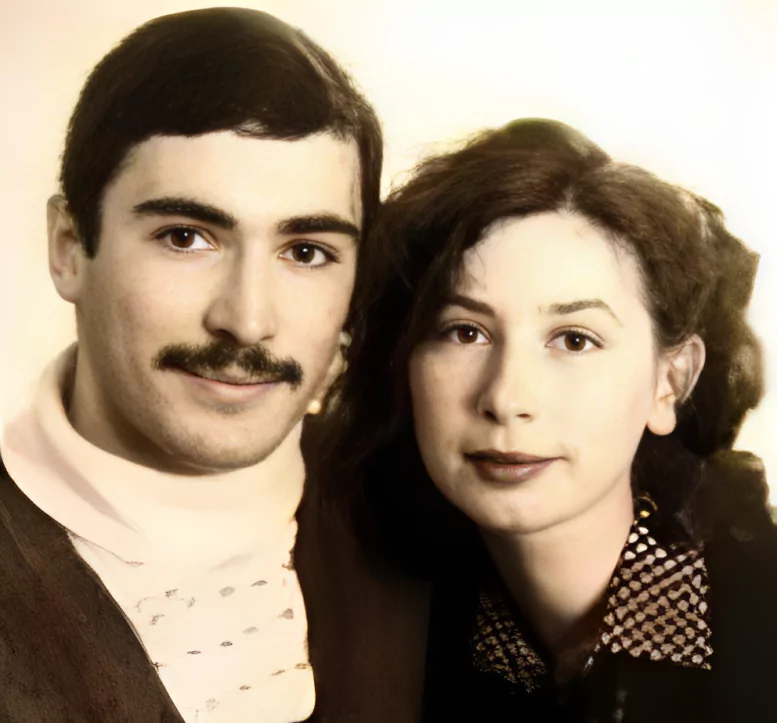
In his personal life, Mikhail Khodorkovsky has been married twice. From his first marriage with Elena Dobrovolskaya, he had a son named Pavel.

He married Inna in 1991, marking his second marriage. The couple’s union created a deep connection and a feeling of unity within the family. They were fortunate enough to have three children, whom they named Nastya, Gleb, and Ilya. After being released from prison, Khodorkovsky decided to reside in Germany. Eventually, he relocated to Switzerland while he awaited his residence permit.
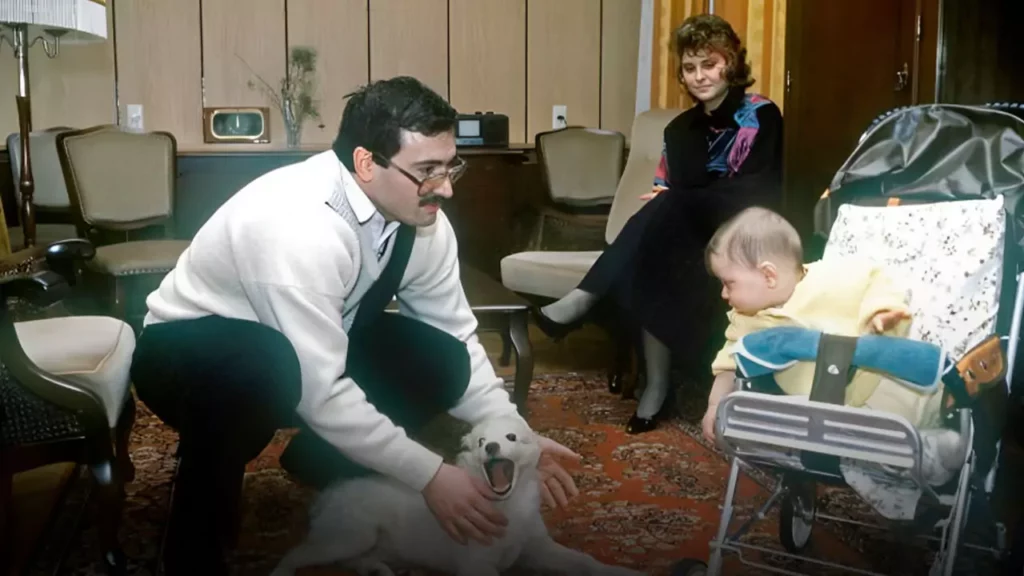
Net Worth
Mikhail Khodorkovsky once hailed as the wealthiest man in Russia, faced a staggering downturn in his fortunes, emblematic of a tumultuous journey shaped by legal battles, political transformations, and shifts in the Russian business sphere. In 2003, his net worth reached an apex at $15 billion, marking him as a titan in the Russian oligarchy.
Khodorkovsky’s financial situation changed dramatically due to legal issues and political events. His arrest and time in prison significantly reduced his wealth. When he was released in 2013, his estate was estimated to be between $100 million and $250 million, much less than his previous billions.
Towards the end of 2014, Khodorkovsky’s financial situation continued to decline, reaching approximately $500 million. The significant decrease highlighted how legal challenges, political dynamics, and the changing Russian business landscape influenced his economic journey.
According to more recent evaluations, it is believed that Khodorkovsky’s wealth amounts to around $100 million.
Literary works of Mikhail Khodorkovsky
Mikhail Khodorkovsky is an exiled Russian businessman, oligarch, and opposition activist who has written several literary works. Some of his notable works include:
- The Russia Conundrum: How the West Fell for Putin’s Power Gambit—and How to Fix It: This book discusses the complex relationship between Russia and the West and offers insights into how the West has been deceived by Putin’s power tactics.
- My Fellow Prisoners: This moving portrait of prisoners tells the story of lives destroyed by bureaucratic criminality and is a passionate call for change in the Russian prison system.
- A Russian Prisoner: This book, available in French, is another work by Khodorkovsky that delves into the issues surrounding the Russian prison system.
- Mina Medfangar: Khodorkovsky wrote this book in Swedish, focusing on the experiences of Russian prisoners.
In addition to these books, Khodorkovsky has also written essays and articles on various topics, such as Russian oil policy and global perestroika.
Many Russian speakers find inspiration in his works, which have sparked discussions among some of Russia’s best-selling writers.
Yukos: Brief details and history
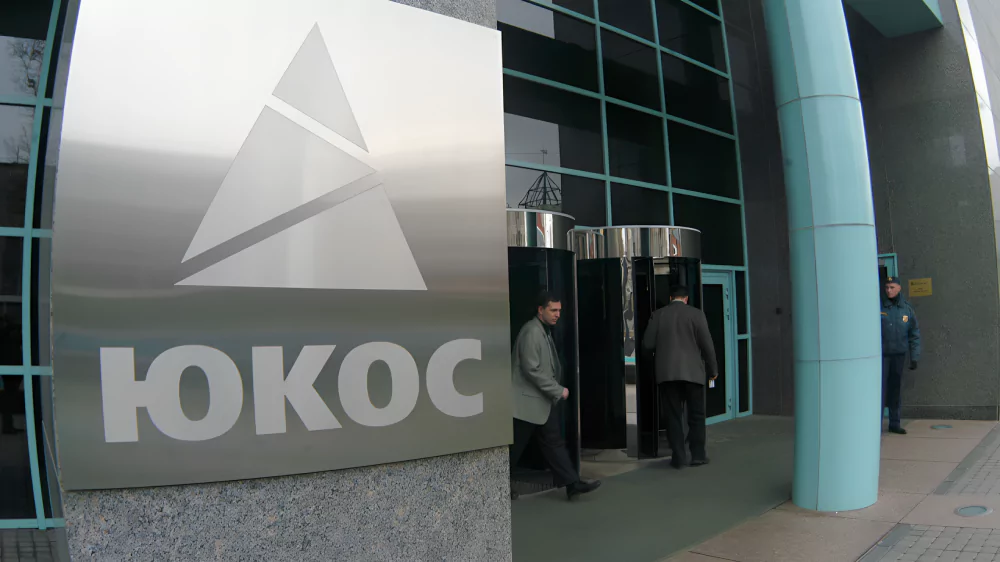
Yukos, an oil and gas company headquartered in Moscow, Russia, gained prominence when Russian oligarch Mikhail Khodorkovsky acquired it from the Russian government in the mid-1990s. However, the company’s fate took a dramatic turn when the Russian government issued a series of tax claims totalling US$27 billion between 2003 and 2004. This led to the freezing and subsequent seizure of Yukos’ assets, rendering the company unable to meet the exorbitant tax demands. State-owned oil companies took control and transferred the majority of Yukos’ assets.
Yukos was distinguished for its commitment to corporate governance reform and transparency, with Khodorkovsky being perceived as a pro-democratic reformer. In a legal battle, the company’s majority stakeholders were awarded $50 billion against Russia. The Yukos case became a focal point of a protracted legal and political dispute, as the former owners argued that the company had been targeted through politically motivated attacks by the Russian authorities.
The Yukos affair was entwined with the “loan for shares” scheme, where the Russian government exchanged its oil companies for loans. The case triggered extensive legal proceedings and resulted in substantial international arbitration awards. The saga of Yukos remains a complex chapter in Russia’s business and political history, highlighting the challenges and controversies surrounding the intersection of state power and corporate interests.
Role of Mikhail Khodorkovsky in Yukos
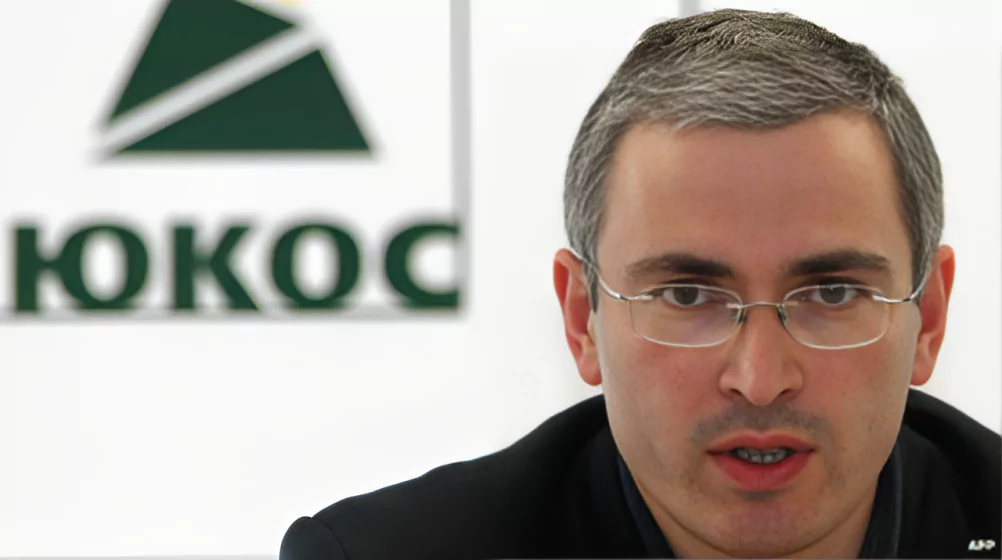
Rise of Yukos and Khodorkovsky
1. Acquisition of Yukos: In the mid-1990s, Khodorkovsky acquired Yukos from the Russian government and transformed it into the country’s second-largest oil company.
2. Transparency Initiatives: Khodorkovsky implemented unusual transparency measures at Yukos, making it one of Russia’s most transparent and well-run companies. International investors were attracted to the company due to these reforms.
Downfall and Arrest
1. Legal Troubles: In 2003, Khodorkovsky was arrested on charges of tax evasion, fraud, and theft, sparking a major controversy. Many viewed these charges as politically motivated.
2. Yukos Breakup: Following Khodorkovsky’s arrest, the Russian authorities broke up and sold off Yukos, transferring its assets to state-owned oil companies. The move was criticized as a politically driven attempt to weaken a potentially powerful competitor.
Legal Battles and Imprisonment (2003-2013)
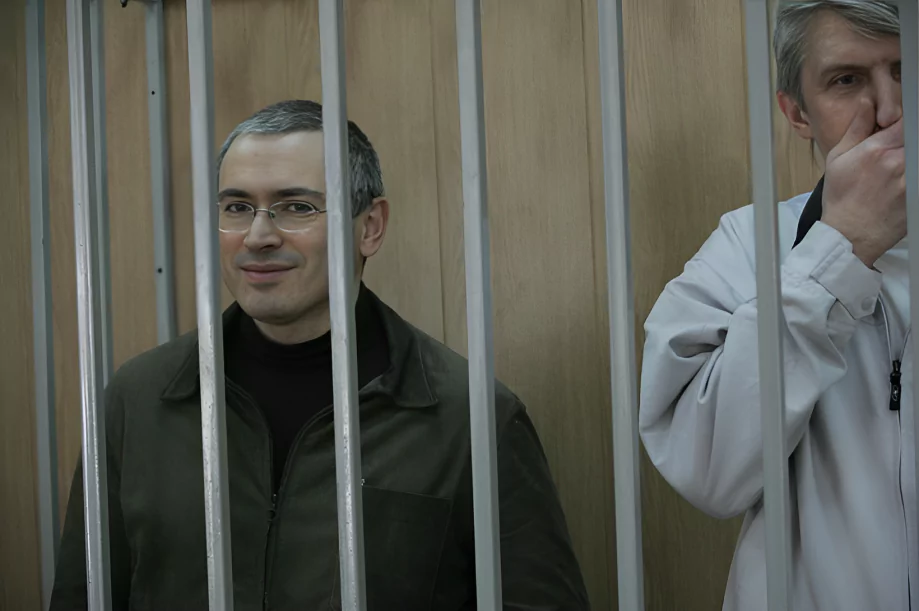
In 2003, Mikhail Khodorkovsky‘s life took a dramatic turn when he was arrested for alleged tax evasion and theft. Following the collapse of Yukos, there were accusations that I had been leading a criminal community and had played a role in causing it. After enduring a series of trials, he was ultimately handed down a combined sentence of 14 years. After enduring hunger strikes and facing controversies in prison, Khodorkovsky served his sentence until he was released in 2013. This happened through a pardon issued by President Vladimir Putin.
Legal Battle and Tribunal Ruling
1. Tribunal Decision: A tribunal ruled in favour of the majority stakeholders of Yukos, awarding them $50 billion. The ruling concluded that the Russian authorities had launched politically motivated attacks against Yukos, leading to its destruction.
2. Intentions of the Russian Federation: The tribunal found that the Russian Federation intended to bankrupt Yukos, transfer its assets to a state-controlled company, and imprison Khodorkovsky. This was seen as an effort to eliminate a potential political competitor.
Political Motivations
1. Suppression of Opposition: Khodorkovsky’s increasing political influence was perceived as a threat by the Russian authorities. His arrest and the dismantling of Yukos were seen as tactics to suppress political opposition.
2. Transfer of Assets: The tribunal’s ruling suggested that the Russian government aimed to transfer Yukos’ assets to state-controlled entities, consolidating power in the hands of the state.
Legal Battles and Charges in Chita (2006-2008)
In December 2006, Mikhail Khodorkovsky and Lebedev were moved to Chita, where they faced new charges of embezzlement and money laundering through oil companies Fargoil and Ratibor. The accusations later evolved into charges of “theft by appropriation” of nearly 350 million tons of oil and “money laundering on an especially large scale.” The defendants dismissed the charges as absurd, claiming they were accused of stealing and legalizing all of YUKOS‘s oil production.
Khodorkovsky emphasized that the investigation focused on routine business reporting documented in YUKOS’s financial records. He expressed readiness to provide explanations if the investigation adhered to the law and included the relevant documents in the case. However, he refused to provide further details until then.
In July 2008, Khodorkovsky’s legal team sought parole, citing President Dmitry Medvedev’s statements about court independence. Despite positive remarks about Khodorkovsky, the court denied the parole request, stating he hadn’t shown remorse.
In February 2009, Khodorkovsky and Lebedev were moved to Moscow for hearings on the second Yukos case, lasting until December 2010. High-ranking officials, including Sberbank’s German Gref and Industry and Trade Minister Viktor Khristenko, testified that Yukos operated within the legal framework. Khodorkovsky’s defence requested the presence of Prime Minister Vladimir Putin at the trial, but the court deemed it premature.
Khodorkovsky’s final statement in court on November 2, 2010, expressed pride in YUKOS employees resisting false witness coercion. Khamovnichesky Court convicted Khodorkovsky and Lebedev on December 27, 2010, sentencing them to 14 years in prison. Rumours of external influence over the verdict arose, but the court denied these claims. Khodorkovsky urged President Medvedev to ensure court independence.
Medvedev later authorized an independent examination of the case, revealing serious trial violations. However, after Putin’s presidency in 2012, experts in the Yukos case were investigated for biased assessments. The country’s leading economist, Sergei Guriev, left Russia due to persecution in 2013. Although rumours of a “third YUKOS case” circulated, it never reached court.
Post-Prison Activities and Literary Works (2013-2020)
Following his release, Mikhail Khodorkovsky committed himself to engaging in public service, choosing to distance himself from any political engagements. He wrote several analytical works, such as “Introduction to the Future” and “Crisis of Liberalism.” He delved into various subjects in his writings and continued to produce more books, such as “Prison and Freedom” and “Articles. Dialogues. Interview: Exploring an Author’s Collection.”
Return to the Political Scene
Although he had initially made a promise to steer clear of politics, Khodorkovsky eventually found himself back in the political sphere. He shared his opinions on Putin’s presidency, got involved in political initiatives such as the “United Democrats,” and initiated the Dossier project to uncover corruption in Russia. He consistently expressed his opinions on social media, discussing various topics including the poisoning of Alexei Navalny, government corruption, the Belarusian protests, and the economic situation of the country.
Khodorkovsky’s Post-Prison Activism
In 2014, MBK’s significant public appearance was at Maidan Nezalezhnosti in Kyiv, shortly after Viktor Yanukovych’s ousting. Khodorkovsky, emotional and urging Ukrainians to recognize a different Russia, addressed the crowd, emphasizing the existence of Russians opposing Putin’s regime.
A month later in Kyiv, Khodorkovsky organized the “Ukraine-Russia: Dialogue” congress, facilitating communication between Russian and Ukrainian figures. In September, he launched “Open Russia,” aiming to create an alternative information space, fostering discussions through lectures and online events.
Khodorkovsky clarified that Open Russia wasn’t a political party but an infrastructure to support candidates aligned with European values. Despite not seeking political office, he expressed readiness to back candidates fighting corruption and tyranny in Russia.
While speaking in Paris, Mikhail Khodorkovsky didn’t rule out becoming Russia’s President if it involved overcoming crises and instituting constitutional reforms favouring the judiciary, parliament, and civil society. At various international forums, he criticized Putin’s decades of advocating for Russia’s return to a European development path.
Khodorkovsky also addressed human rights issues, pledging a joint cash prize with Navalny for political prisoners. At the end of the year, reflecting on his release, he promised to work towards freedom for all Russians, with or without elections, encouraging citizens to recognize their power and influence.
Recent Developments (2021-Present)
In 2021, Mikhail Khodorkovsky was accused of providing financial support for mass rallies in Belarus. Consequently, he faced the challenging choice of discontinuing several projects to prioritize the well-being of his colleagues. Even though he encounters difficulties, he remains determined in his social endeavours and continues to have a significant impact when it comes to tackling various matters.
Summary
Mikhail Khodorkovsky, born in 1963 in Moscow, began his journey as an entrepreneur in the late 1980s, founding the Center for Scientific and Technical Creativity of Youth and later establishing Menatep Bank. Menatep became one of the first privately owned banks in post-Soviet Russia, gaining prominence despite its later association with international scams and organized crime.
In the early 1990s, Khodorkovsky shifted focus to the oil industry, acquiring Yukos and transforming it into a global energy player. Active in philanthropy, he co-founded the Open Russia Foundation in 2001, later transformed into “Open Russia,” which faced restrictions from Russian authorities.
Khodorkovsky’s net worth peaked at $15 billion in 2003, but legal issues and political events led to a significant decline. After imprisonment from 2003 to 2013, he engaged in literary works and post-prison activism. Despite promises to stay away from politics, he returned, criticizing Putin’s regime and initiating projects like “Open Russia.”
Recent developments involve accusations of supporting protests in Belarus in 2021, reflecting Khodorkovsky’s ongoing commitment to social causes amid challenges.




